Laura Koran and Elise Labott, CNN; see also.
Washington (CNN) During Ambassador Leslie Bassett's first tour as a US foreign service officer in Nicaragua, she rebuffed the advances of a male superior. As she describes the encounter, he "showed up uninvited at my home on his birthday, unexpectedly stuck his tongue in my mouth and assumed we would have sex as his present."
"When I declined, I was excluded from meetings and professional opportunities as he very publicly shunned me at both official and private events," Bassett, now retired, adds. "I told no one."
In the cover story for the March Foreign Service Journal, a publication from the American Foreign Service Association, Bassett sheds light on what she sees as a persistent problem of sexual harassment and abuse within the State Department, which she says continues to plague the ranks of the diplomatic corps -- sometimes holding victims back in their careers -- and has attracted the attention of Secretary of State Rex Tillerson.
Bassett, who spoke with CNN ahead of the article's publication, said she was inspired by the recent #MeToo movement, which has sought to counter sexual harassment and violence using the power of social media. She told CNN she hopes the effort will help "foster faster institutional change in the national security agencies, including the State Department."
On another occasion, Bassett says a different boss callbaced her up late one night, and wanted to know what she was wearing. Bassett was the second highest-ranking official in the embassy at the time, and her boss was the US ambassador.
The two encounters -- which happened years apart, at dramatically different stages of Bassett's more than three-decade long career -- emphasized to her the pervasiveness of harassment in the State Department, where "deep-seated prejudices" have been tolerated, and where cultural and structural mechanisms have allowed inappropriate behavior to continue, often unaddressed.
"The problem of sexual harassment and even assault is persistent; it is real; and it needs to be addressed," she writes. "We can't wait any longer to make meaningful change."
It's a problem Secretary Tillerson has acknowledged, and addressed publicly in a recent town hall with employees.
"Harassment and abuse have no place in a nation founded on the ideals of individual liberty and the pursuit of happiness, and it can have no place in this organization, our State Department," he said to applause. "Not here in Washington, not at post abroad. Nowhere. I cannot and I will not tolerate it."
Tillerson was briefed on the agency's harassment and abuse statistics when he first took office and has since spoken to staff about his zero-tolerance approach on the issue at embassies and consulates around the world.
He also told senior staff at a recent leadership meeting, that his concerns about the issue were further triggered when, during his January remarks, he saw women crying in the audience as he spoke about the issue, according to Undersecretary for Public Diplomacy Steve Goldstein [JB emphasis], who was in the leadership meeting. Between the statistics and witnessing the emotional reaction, said Goldstein, Tillerson knew he had a problem and has been trying to aggressively attack it.
"Sexual harassment will not be tolerated at the Department of State," State Department Spokeswoman Heather Nauert told CNN in a statement Wednesday. "This has been made clear to Department employees -- both domestic and international -- and our senior-most officials have taken the lead in efforts to staunch unacceptable workplace behavior."
She referenced Tillerson's January remarks to staff and said the secretary has mandated anti-harassment training for all employees in the coming weeks.
"Addressing sexual harassment is one of Secretary Tillerson's priorities and he has been hands on in this effort, drawing a clear line in the sand regarding behaviors that will not be tolerated at the State Department," said Nauert.
Bassett's article includes stories from six current State Department employees who shared their experiences with her anonymously, in part because they are still working for the agency.
Most of the women whose stories are featured in the article spoke with CNN. While we cannot independently confirm elements of their experiences, the women corroborated the accuracy of their accounts as they appear in the Foreign Service Journal.
One woman explained to Bassett how, as a senior foreign service officer, she and two female colleagues were approached by three junior officers at the end of their first overseas post. They shared an array of worrying behaviors they'd encountered there and wanted to know whether these were typical of what they could expect in a foreign service career.
Another agency employee states in the article, "I have a co-worker who almost every time we interact feels the need to remind me that he thinks we should date because I have 'a nice ass'—despite the fact that I made it clear that I am not interested years ago."
Another describes accompanying a visiting US congressman to the airport after he persistently badgered her to have a drink with him at his hotel bar and "looked pointedly" down her shirt.
Bassett told CNN she was encouraged by conversations she'd had with other women in the national security realm who have recounted similar experiences to her. More than 200 such women, including Bassett, signed an open letter in November, calling on the national security community to take specific actions to prevent and address abusive behavior that holds women back.
"It was an opportunity for all of us to acknowledge together for the first time what we had experienced as individuals across a career," Bassett told CNN, "and what we saw continuing as challenges for women in the national security sector, not just the State Department."
The State Department received 483 reports of harassment in the 2017 fiscal year, 225 of which included "claims of sexual or gender-based harassment," a State Department official tells CNN.Metrics related to harassment can be unreliable because the victims sometimes chose not to come forward, or multiple people come forward to report the same incident.
While the State Department is hardly alone in its struggle to address harassment, Bassett says there are elements of the culture and structure at the agency that make the problem harder to tackle.
In particular, Bassett writes about how a heavy reliance on "corridor reputation" in personnel assignments can prevent women from coming forward about abuse out of fear they will be viewed as troublemakers or prone to complaining.
A current State Department employee who spoke on condition of anonymity told CNN that navigating this word-of-mouth system [JB: see 1st para] is particularly challenging at the State Department, because foreign service officers often work together in small overseas posts where the lines between their personal and professional lives are more blurred.
Bobby Devadoss, a Dallas-based employment attorney who focuses on cases brought by federal employees, told CNN that, for many government staffers, the concerns outlined by Bassett are, "the gospel truth."
"Retaliation is very prevalent," he said, and often comes in subtle forms that are hard to pinpoint or address and can lead to questions about performance.
In her article, Bassett explains how the internal reporting process can be onerous and time consuming for victims, and suggests the agency lacks the kind of clear guidance and mandatory harassment training can lead to better accountability.
She is calling for the creation of a special committee with a diverse membership, "to investigate all forms of sexual harassment within the State Department and create actionable recommendations on institutional reform within a reasonable time-frame."
Steve Goldstein told CNN that Tillerson has already instructed staff to develop new compliance procedures so cases do not become buried in the State Department's various bureaus.
"He tells us, 'there is right and there is wrong and we have to put a stop to it,'" Goldstein recounted. "He is saying 'this is no longer a permissive environment.' By doing that, you reduce instances of it immediately because people get the message it will not be tolerated."
Bassett and others who spoke with CNN for this story point out that locally employed staff at US embassies and consulates are particularly vulnerable to harassment and abuse because they don't have access to the same grievance mechanisms as American employees and tend to be outranked by their diplomatic colleagues.Goldstein noted that Tillerson has paid particular attention to this issue.
A former Equal Employment Opportunity counselor who spoke to Bassett for the article and later recounted her experience to CNN, said that while such cases involving locally employed staff are not commonplace, they are unique because of the lack of formal recourse, and because victims can face additional cultural stigmas that sometimes lead to self-censorship.
Beyond her recommendations to the State Department's leadership, Bassett also encourages people who have witnessed or experienced harassment to come forward.
She acknowledges she didn't speak up when she encountered harassment in her own career, but says the agency has made improvements in its reporting process since her early days and she hopes the cultural shift brought on by the #MeToo movement will encourage staffers and their managers to speak up when they see inappropriate behavior.
"We need a united front on the supervisory angle to make sure its zero tolerance, its immediate, its public, its transparent, and it's evident that it just will not be accepted," she said.
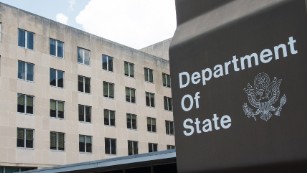
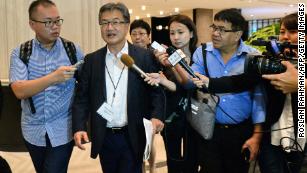

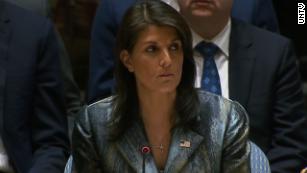
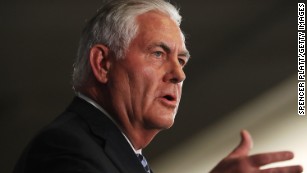
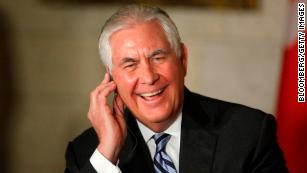
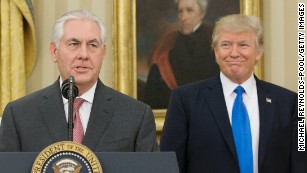
No comments:
Post a Comment